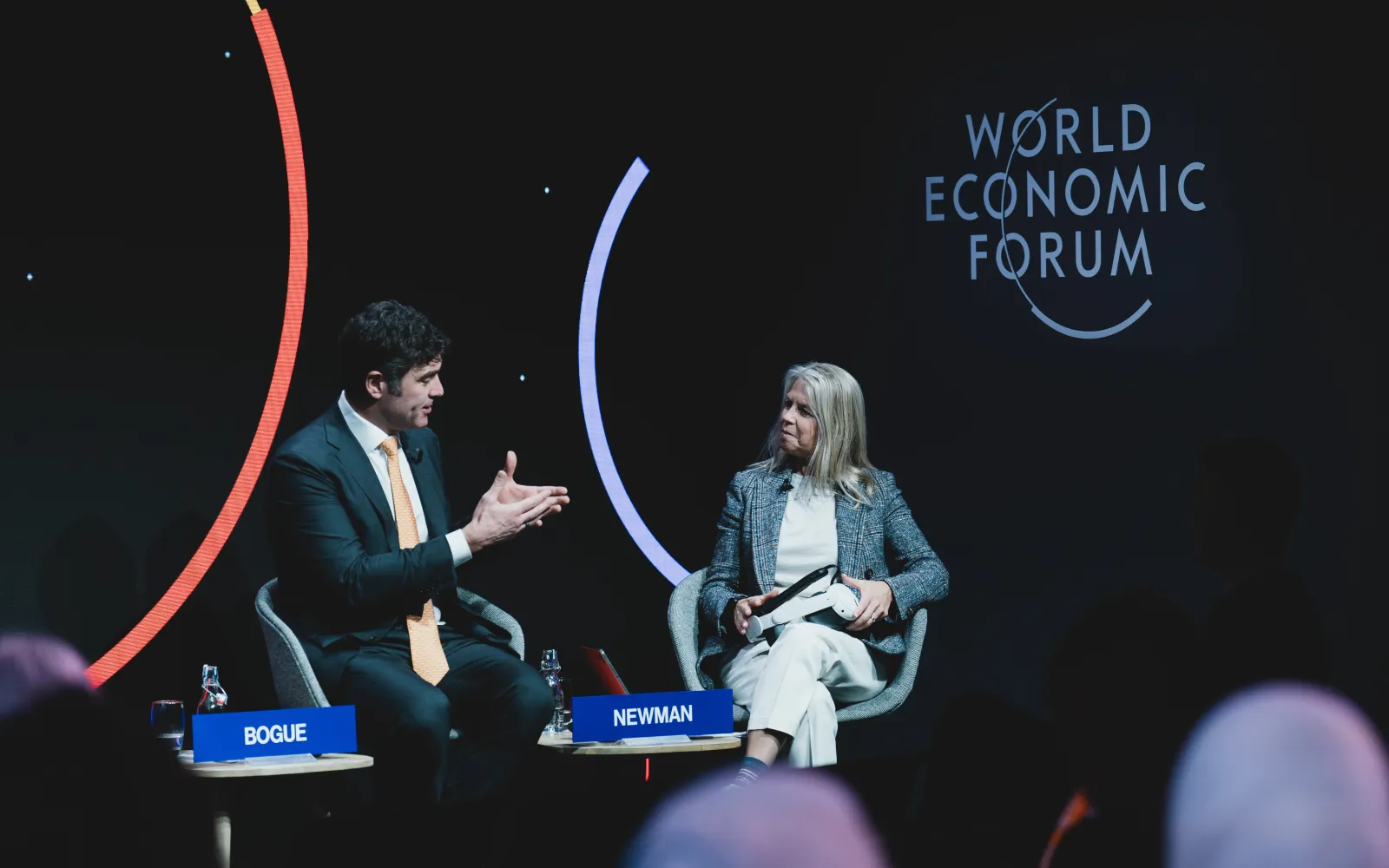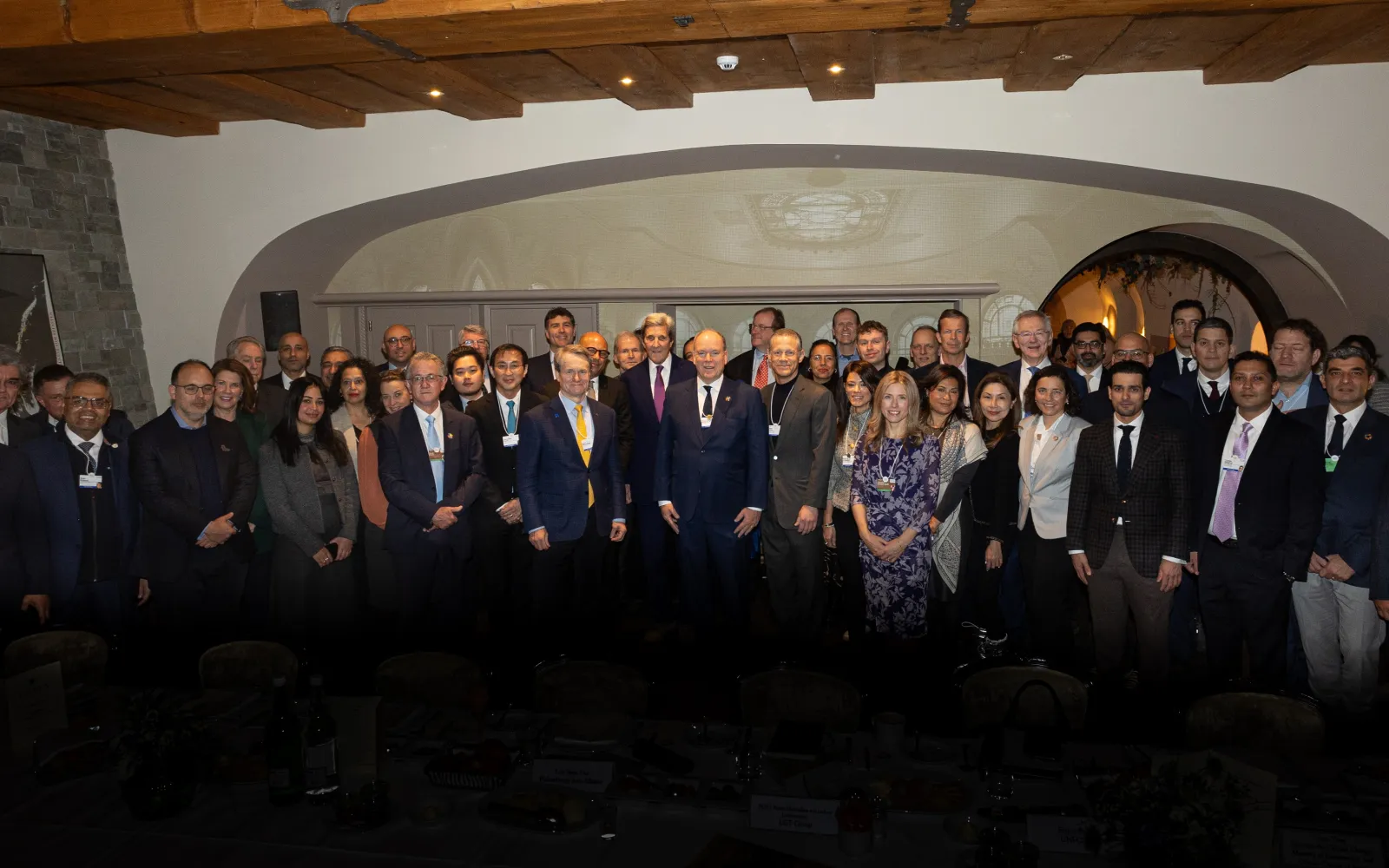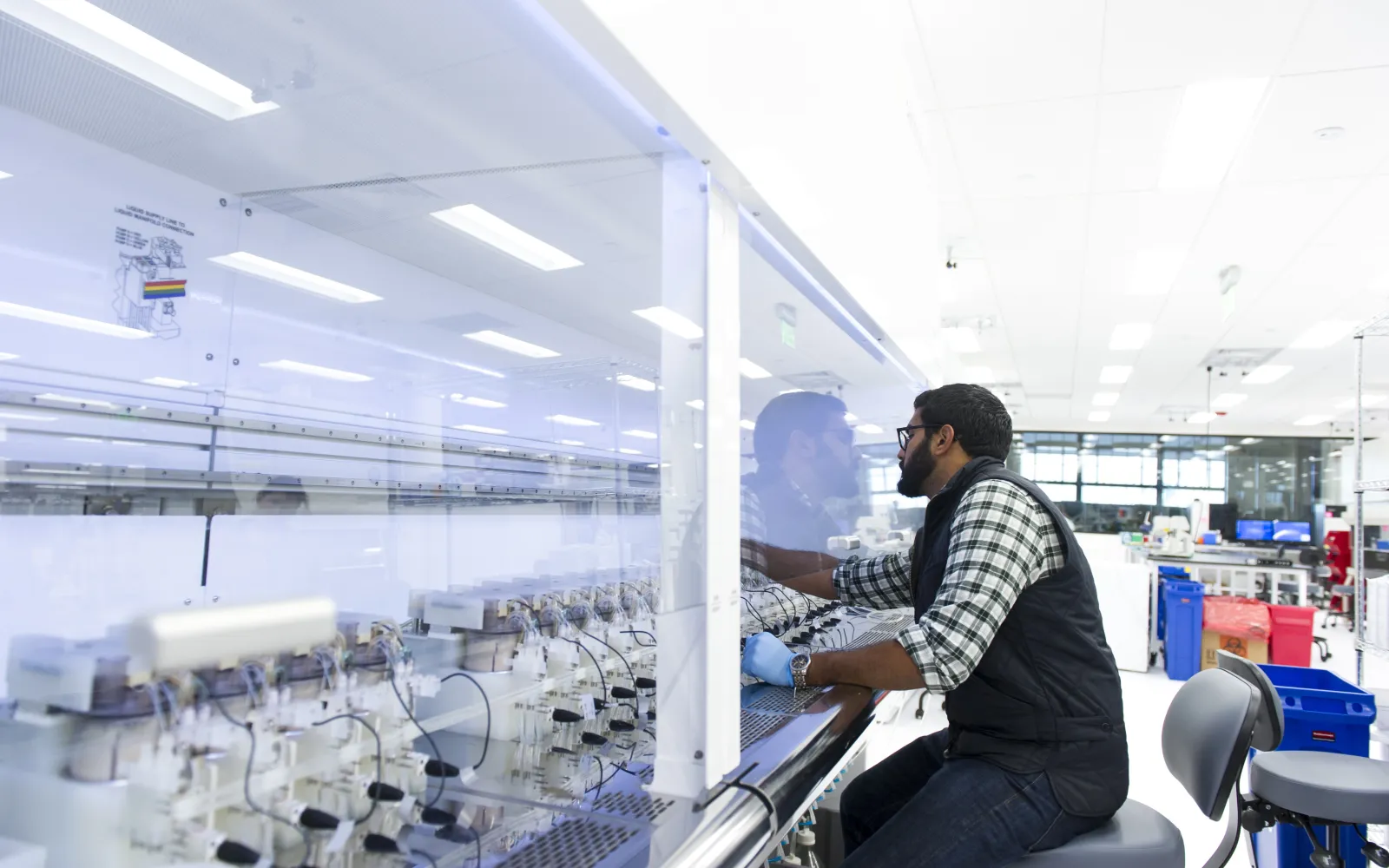

Pivot Bio
Reprogramming soil microbes to produce nitrogen sustainably
I returned from this year’s Davos with my head brimming with insights and a renewed sense of urgency around the role that deep tech can play in addressing society’s most intractable challenges. I also return proud to have seen DCVC portfolio companies Pivot Bio, Planet, Desktop Metal, Ginkgo Bio, Pano AI, and Rescale all in attendance.
Early in the week, MIT aerospace engineer and MIT Media Lab Director Dava Newman and I presented on Earth Observation (EO) in the WEF’s Betazone, where she explored how her invaluable EO tool empowers societies to understand their environment, and I covered the pathway and imperative of commercializing EO platforms (more on the overall imperative of commercialization here). The potential of EO data to revolutionize industries like agriculture, energy, and disaster response is undeniable, and I was glad to have the opportunity to show images from Planet and Capella Space, two DCVC portfolio companies that are leaders in this sector. Later that same day, I took part in an expert discussion that covered the recent evolution of EO data business models and identified what changes are needed to increase adoption of EO data.
Among the greatest challenges we face are those posed by a warming planet, and it was gratifying to be able to participate in a high-level roundtable discussion that reviewed the outcomes of the recent COP28 climate negotiations in Dubai and examined the crucial next steps the private sector can take to achieve climate goals. The discussion, co-hosted by Badr Jafar, COP28 Special Representative for Business & Philanthropy and CEO of Crescent Enterprises, and Brian Moynihan, Chair of the Sustainable Markets Initiative and Chair and CEO of Bank of America, emphasized the importance of the private sector’s role in driving success, celebrated the ongoing role that the private sector will play in the annual COP process, and the urgency of addressing climate challenges collaboratively. (See my summary of my week at COP28 here.)
As might be expected following a year of constant buzz over generative AI, a frequent topic of conversation at this year’s meeting was the hype surrounding current technological advancements. My participation on the Hype Cycles and Startup panel (see photo above) allowed me to share DCVC’s perspective: I emphasized the need to embrace the potential of cutting-edge technologies while also rigorously analyzing the data surrounding any given company and its industry. I encouraged Davos attendees to read DCVC’s most recent Deep Tech Opportunities Report, in which we unpack our investment thesis across a variety of sectors — showcasing not only what we consider the most promising opportunities but also calling out several hype-fueled technologies that we believe are currently harder to scale than people think.
Our report highlights a cautious approach toward the hype in the AI sector, and during a separate panel discussion that focused specifically on AI from an investing perspective, I articulated where I think the next big AI breakthroughs will occur. I underscored our emphasis on investing in AI-driven innovations that offer practical, real-world solutions, and that show potential for substantial impact and scalability. We see major opportunities for AI applications in areas such as TechBio, climate technology, and robotics.
Beyond what I learned at the panels and discussions, the most valuable takeaways from Davos came from the informal interactions — late-night conversations with fellow investors, entrepreneurs and policymakers, and impromptu brainstorming sessions over coffee— that bind this community together and give it shared purpose. Toward that end, I was glad to host DCVC’s seventh annual Deep Tech in Davos nightcap, which has become a fantastic way to gather our fellow travelers from across the world. My conversations, and the week in general, reinforced my conviction that we are in the middle of a secular rotation into deep tech — applying the power of compute to solve real-world, trillion-dollar problems across industries.
Deep tech’s moment has arrived. From advancing healthcare and sustainable energy to harnessing AI for tangible benefits, its potential is immense. Deep tech has been DCVC’s domain since our founding in 2010, and we remain committed to shaping a future in which it brings greater resilience, abundance, and equitability to all.
Zachary Bogue is Co-Founder and Managing Partner of DCVC.
Reprogramming soil microbes to produce nitrogen sustainably
Providing daily data and insights about Earth
Delivering mass-production 3D printing
Programming cells to make everything from food to materials to therapeutics
Applying AI and computer vision to wildfire management
A cloud-based platform for computational engineering and R&D
Any time, any weather Earth observation for commerce, conservation, and security

















